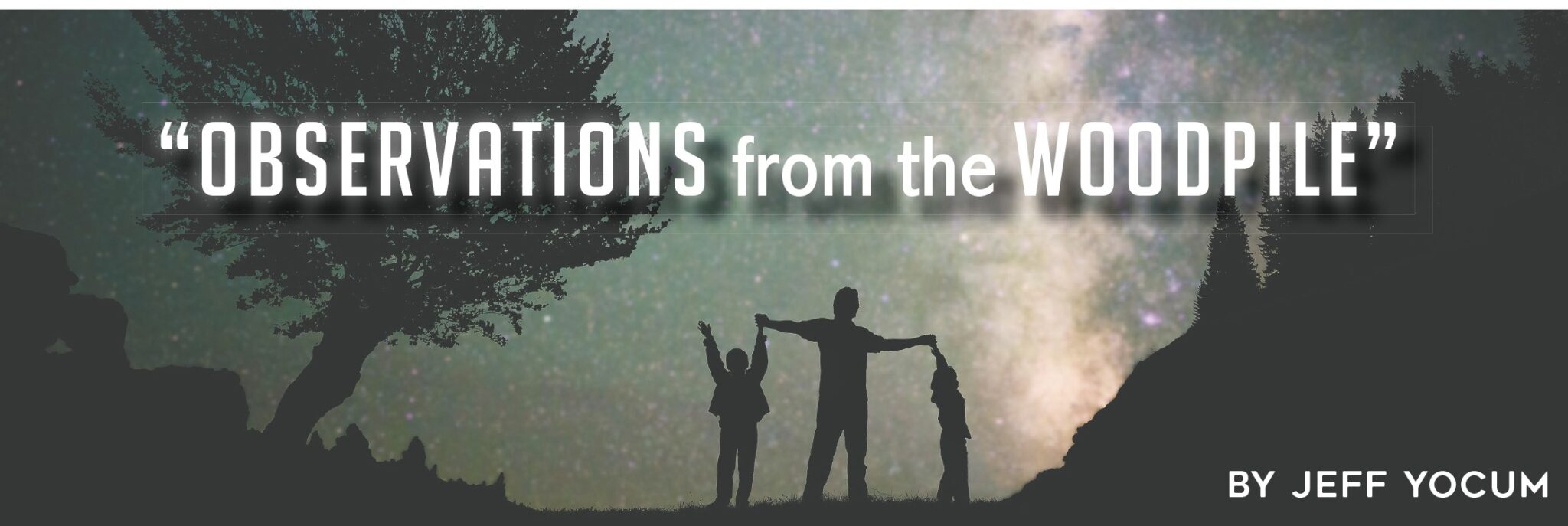
“Observations from the Woodpile”

Jeff Yocum
Prologue
Observations from the Woodpile” is a collection of essays bundled together and given as a birthday present for my wife, Nancy, in 1997. Twenty-seven years have passed since the collection was given. The two main subjects of the essays, my sons Justus and Jacob, have grown into men with families of their own.
Everything But the Squeal
After cutting wood for several years now, I consistently end up with several by-products. Early on in my wood cutting endeavors, most of this by-product was just scrap. It began making a mess. Splinters would get caught in the lawn mower; grass would die where the sawdust piled up. I had to get rid of the scrap.
Splitting wood always creates thin splinters not big enough for firewood. But a handful of those long splinters makes great kindling. Now, I have the boys gather all the splinters and save them in a kindling box. They usually collect a large wheelbarrow full of them.
The boys gather about six or seven large buckets of sawdust every year. We could get more except it falls into the grass. I sprinkle most of it on my wife’s strawberry beds. It helps the plants hide from winter and puts a little organic material back into the soil. In turn, we get about 15 gallons of strawberries every June. I don’t know how much of this bounty we can credit to sawdust, but it hasn’t hurt.
There are always short pieces left over that only make it difficult to stack the wood. I save these and pile them up in a corner of the barn. I grab a few pieces from the pile throughout the winter. They burn just fine. They just don’t look that great.
Ash is all that’s left at the bottom of the stoves. About once every 10 days, we shovel most (not all) of the ash into a metal bucket and take it to the garden. The ash is rich in potassium. We either spread it over the garden or add it to the compost. A well-fed garden returns the favor.
I used to work with a fellow who described how his family made use of the whole hog when butchering time came as, “We used everything but the squeal.” That may not be very appetizing, but it is a pretty good way to approach woodcutting—waste nothing.
